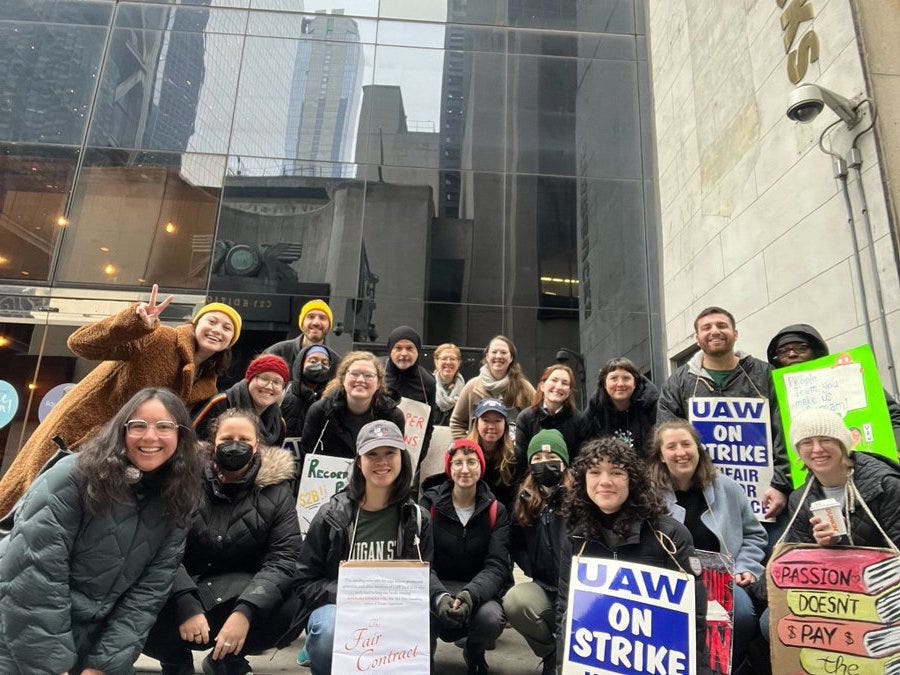Notebook: Word Workers
HarperCollins workers, on strike since November 10, the morning of the day their union reached a tentative agreement with management
The pandemic saw more people working from home and walking away from 9-to-5 desk jobs in favor of a flexible schedule, swelling the pool of freelancers where writers, editors, translators, and other word-laborers have long swum. (Pen = lance!) This shift—whose breadth and durability remains unknown—has been accompanied by a resurgence of unions, an effort to curtail the power of large, consolidated corporations to dictate working conditions, and concerns for the fate of “gig workers” on whom the app economy has found it can rely for flexible, benefit-free labor, throwing the poet and the Uber driver on the same side of the picket line (of course there probably are poets who are Uber drivers) and helping to propel some unexpected victories for the formerly powerless scribe.



